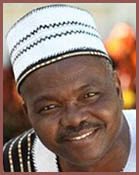 The twin towers of the World Trade Center had just been officially completed in 1973 when I found myself approaching them in a taxi. I was contemplating an elevator ride as high as I could go in what were, at the time, the world’s tallest buildings.
The twin towers of the World Trade Center had just been officially completed in 1973 when I found myself approaching them in a taxi. I was contemplating an elevator ride as high as I could go in what were, at the time, the world’s tallest buildings.
I was in New York City on a fluke, having gotten a one-day job as a documents courier to a few firms on Wall Street and Madison Avenue. After I made my deliveries I could go anywhere and do whatever I wanted on my expense account for the day. I was all of 19 and had never been in a city bigger than my hometown of Charlotte, NC.
Completion of the WTC had been in the news, of course, so I was excited at the prospect of ascending one of the Towers. But as I stepped out of the taxi and craned my neck upward, I was suddenly gripped by a sick apprehension.
"These buildings are too big," I remember thinking – "they’re going to come down." All my tourist’s enthusiasm dissolved and I simply started walking the streets, which were fascinating enough for a NYC newcomer. And that’s why I never set foot in the World Trade Center.
For years I looked back on this incident as just a young rube’s moment of fright at the immensity of the Big Apple. I learned a different perspective two decades later, when I spent several unforgettable weeks interviewing Malidoma Some, PhD., a Western-educated native of Burkina Faso who had been initiated as a shaman in his tribe. Thereafter he was assigned by his elders to “be friends with the stranger/enemy” and teach indigenous wisdom in the West, which was how I came to meet him as a journalist.
Instead, as he pointed proudly to one of the multi-story buildings, Malidoma watched his elder frown and slowly shake his head. "What’s wrong?” he asked.
“Whoever did that,” the elder muttered, “has serious problems.”
Perplexed, Malidoma pressed further: “What do you mean? What kind of problems?”
The old man answered simply, “No one should ever show their power that way.”
I think of that pronouncement often these days, when the world is reeling with catastrophic climate change, ocean-choking plastic pollution, dwindling natural resources and extinction of countless species, and other consequences of “showing our power” in contradiction to the ecological constraints of nature.
It’s a habit that will be costly and difficult to unlearn, and we have already assigned future generations much of the expense. Geopolitics aside, for me it explains the intense disquiet I felt upon first seeing the Twin Towers of the World Trade Center.
— D. Patrick Miller
You can support the development of this writing:

